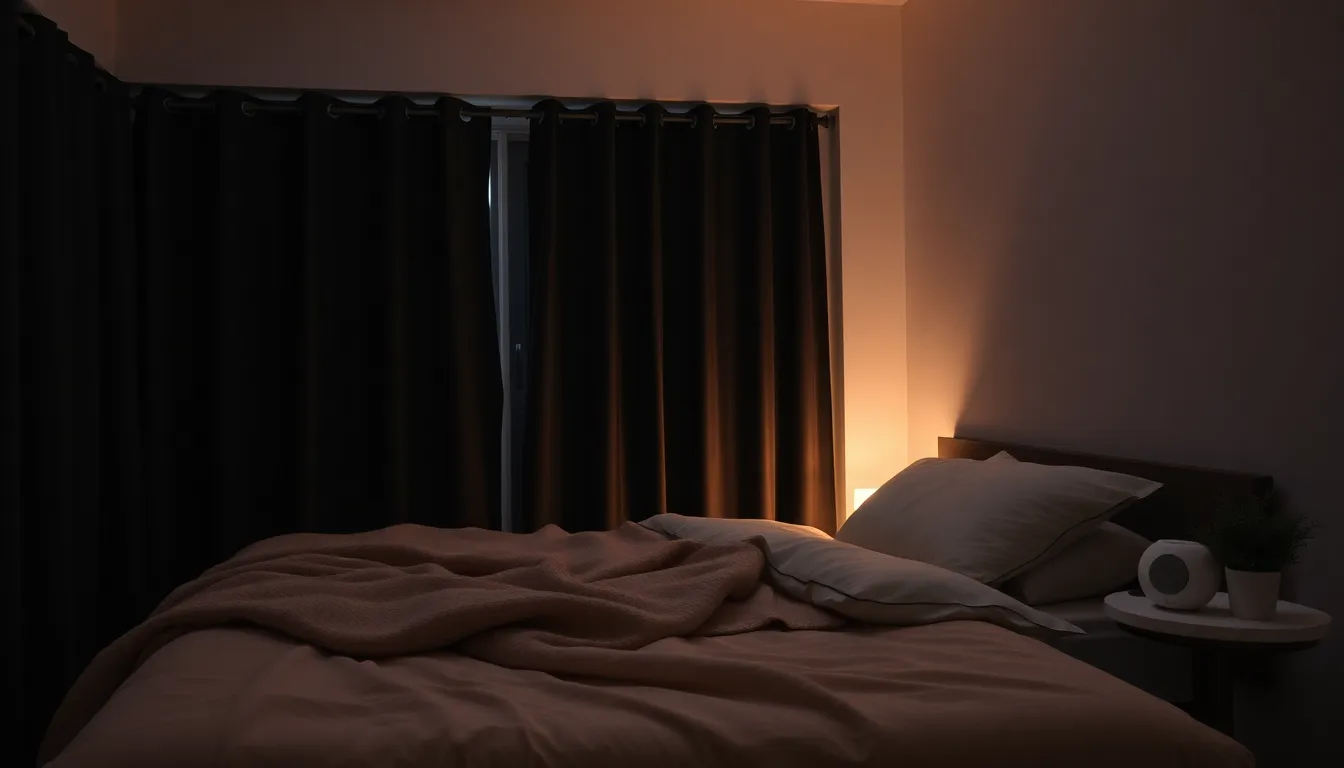Table of Contents
ToggleIn today’s fast-paced world, quality sleep often takes a backseat to busy schedules and endless to-do lists. Yet, achieving restful sleep is essential for overall health and well-being. It affects mood, productivity, and even physical health. With the right strategies, anyone can transform their sleep routine and wake up feeling refreshed and energized.
This article explores practical tips for better sleep that anyone can incorporate into their daily lives. From creating a calming bedtime environment to establishing a consistent sleep schedule, these simple adjustments can lead to significant improvements in sleep quality. Whether struggling with insomnia or just looking to enhance nightly rest, these insights will pave the way for a more peaceful and restorative sleep experience.
Understanding Sleep
Quality sleep impacts overall well-being significantly. Understanding sleep’s importance and its various stages can enhance one’s ability to achieve restorative rest.
Importance of Sleep
Sleep serves crucial functions for physical and mental health. It supports cognitive performance, emotional regulation, and immune system function. Poor sleep can lead to adverse effects, including increased stress, mood swings, and diminished productivity. Research shows that adults require 7 to 9 hours of sleep each night for optimal functioning. Prioritizing sleep promotes better health outcomes and enhances daily performance.
Stages of Sleep
Sleep occurs in distinct stages, each with unique characteristics. Understanding these stages helps in appreciating their role in restoration.
- NREM Sleep
- Stage 1: Light sleep, lasting a few minutes. Transition into sleep begins here.
- Stage 2: The body prepares for deeper sleep, with reduced heart rate and body temperature.
- Stage 3: Deep sleep, essential for physical recovery, occurs in this stage. Growth hormone releases predominantly during this phase.
- REM Sleep
- Rapid Eye Movement (REM): This stage features vivid dreams and brain activity similar to being awake. It’s crucial for cognitive functions, including memory consolidation and emotional processing. Each REM cycle lasts approximately 10 to 20 minutes, increasing in duration through the night.
Understanding these stages aids in recognizing the need for uninterrupted sleep cycles for optimal health benefits.
Common Sleep Disruptors

Several factors can disrupt sleep quality, impacting overall health and well-being. Identifying these disruptors can help individuals address sleep-related issues effectively.
Stress and Anxiety
Stress and anxiety significantly affect sleep patterns. Elevated cortisol levels can lead to difficulty falling asleep, staying asleep, or achieving deep sleep. Techniques such as deep breathing exercises, mindfulness, and journaling can help manage stress. Engaging in regular physical activity also reduces anxiety levels, promoting better sleep quality. Incorporating relaxation techniques into the bedtime routine creates a calming environment conducive to sleep.
Environmental Factors
Environmental factors play a crucial role in sleep quality. Noise, light, and temperature can all interfere with restful sleep. Excessive noise can disrupt the ability to fall and stay asleep, while bright lights can hinder the body’s natural production of melatonin. Ideal bedroom temperatures range from 60°F to 67°F for optimal sleep. Using blackout curtains, white noise machines, or earplugs can mitigate these environmental disturbances. Ensuring a comfortable mattress and pillows also contributes to enhanced sleep quality.
Better Sleep Tips
Implementing practical strategies can significantly enhance sleep quality. These tips focus on establishing routines and optimizing the sleep environment for better rest.
Establishing a Sleep Schedule
Maintaining a consistent sleep schedule helps regulate the body’s internal clock. Going to bed and waking up at the same time daily strengthens this rhythm. Adults benefit from setting aside 7 to 9 hours for sleep each night. Avoiding naps longer than 30 minutes during the day prevents interference with nighttime sleep. Gradually adjusting the sleep schedule in 15-minute increments can ease transitions to new sleep times.
Creating a Relaxing Bedtime Routine
Developing a calming bedtime routine signals the body that it’s time to wind down. Engaging in relaxing activities like reading, listening to soothing music, or practicing gentle stretches enhances the transition to sleep. Limiting screen time at least one hour before bed reduces exposure to blue light, which can disrupt melatonin production. Keeping the routine consistent helps foster better sleep habits.
Optimizing Your Sleep Environment
Creating an ideal sleep environment promotes restful sleep. Keeping the bedroom dark, quiet, and cool can minimize disruptions. Utilizing blackout curtains and white noise machines may enhance comfort. Choosing a comfortable mattress and supportive pillows tailored to individual preferences improves overall sleep quality. Limiting bedroom activities to sleep and intimacy helps reinforce the mental association with restful sleep.
Lifestyle Changes for Better Sleep
Making certain lifestyle changes can significantly improve sleep quality and overall well-being. Consider the following adjustments in diet, nutrition, and physical activity to promote restful nights.
Diet and Nutrition
Adopting a balanced diet impacts sleep quality. Consuming foods rich in magnesium, such as nuts and leafy greens, can contribute to better sleep. Additionally, including carbohydrates from whole grains can facilitate the body’s production of serotonin, a hormone that regulates sleep.
Avoiding heavy or spicy meals before bedtime is essential, as they can lead to discomfort and disrupted sleep. Caffeine and nicotine consumption should also be limited, particularly in the afternoon and evening. Instead, consider herbal teas like chamomile or valerian root as nighttime alternatives for relaxation. Alcohol might seem to induce sleep initially, but it often disrupts sleep cycles later in the night.
Physical Activity
Engaging in regular physical activity promotes deeper sleep. Activities like walking, biking, or yoga enhance overall relaxation and reduce anxiety, making it easier to fall asleep. Aim for at least 150 minutes of moderate exercise each week, spread over several days.
Timing of exercise matters. Early morning or afternoon workouts help regulate the body’s circadian rhythm, while intense exercise close to bedtime may stimulate the nervous system, hindering sleep. Incorporating calming exercises, such as stretching or gentle yoga, closer to bedtime can signal the body to relax and prepare for sleep.
Prioritizing quality sleep is essential for overall well-being. By implementing practical tips like maintaining a consistent sleep schedule and creating a calming bedtime environment, individuals can significantly enhance their sleep experience. Understanding the impact of lifestyle choices on sleep quality is crucial.
Incorporating healthy dietary habits and regular physical activity can further promote restorative rest. It’s important to recognize the factors that disrupt sleep and take proactive steps to mitigate them. With these strategies in place, achieving better sleep isn’t just a dream; it’s an attainable reality that can lead to improved health and daily performance.




